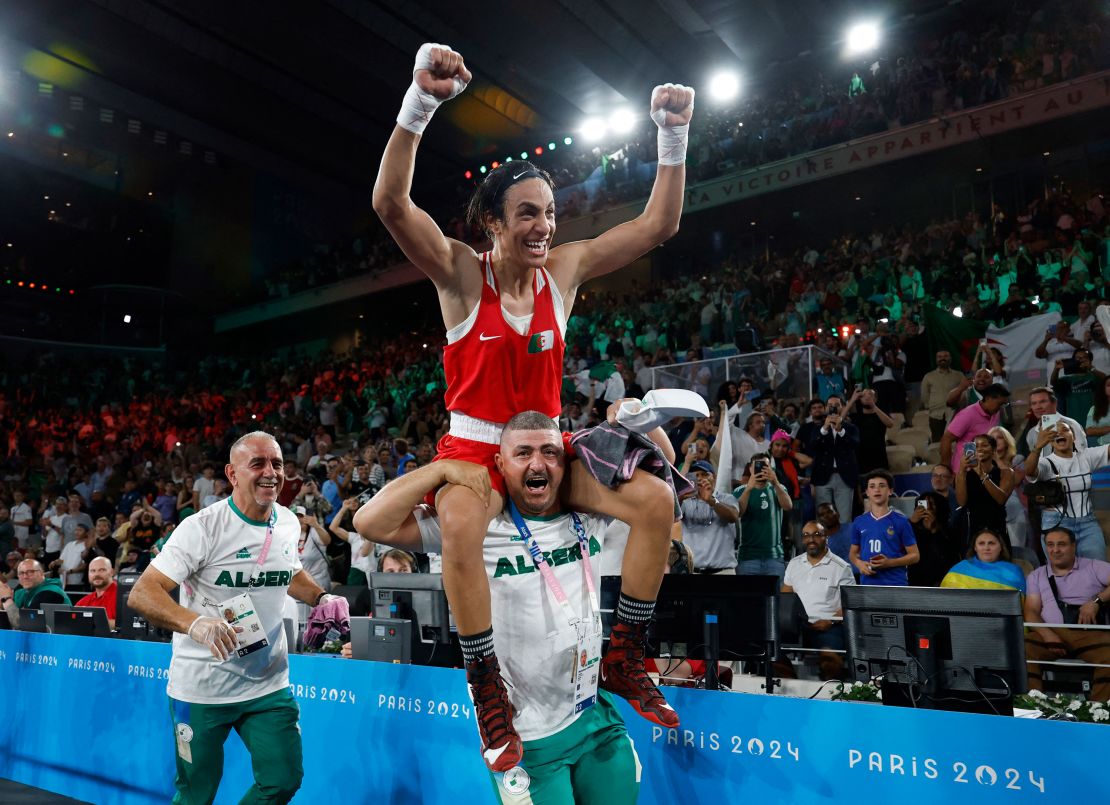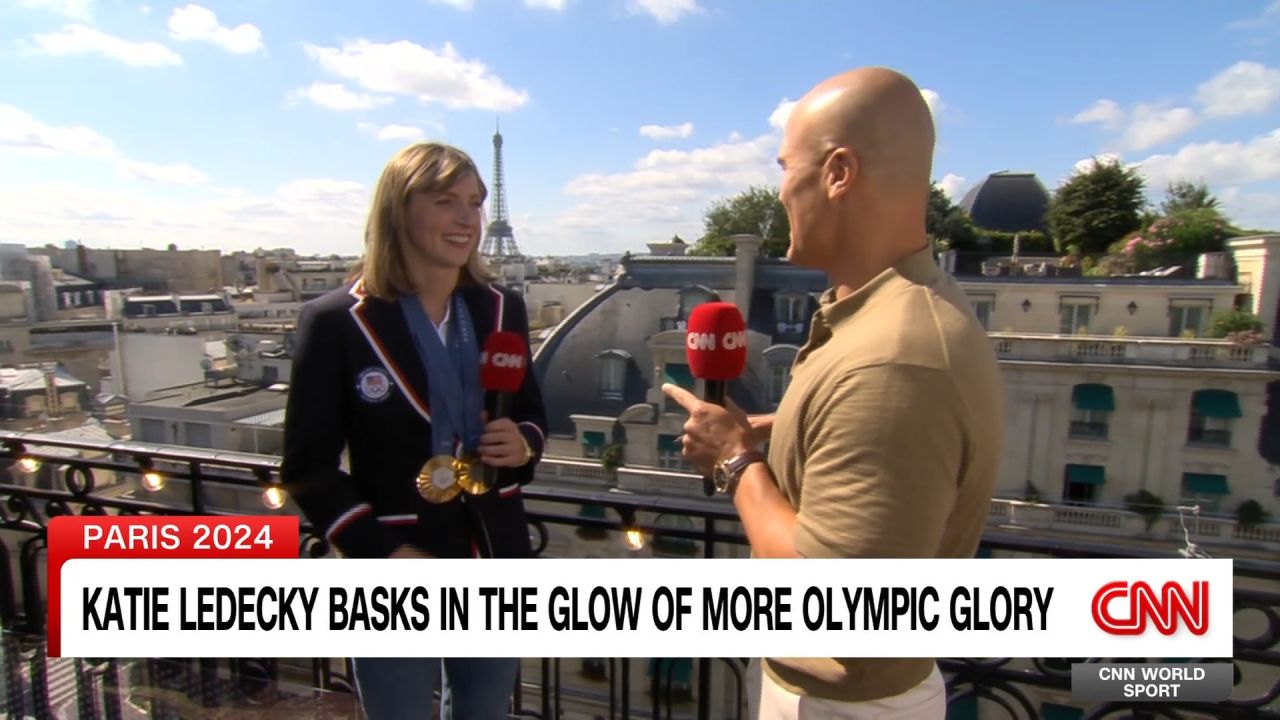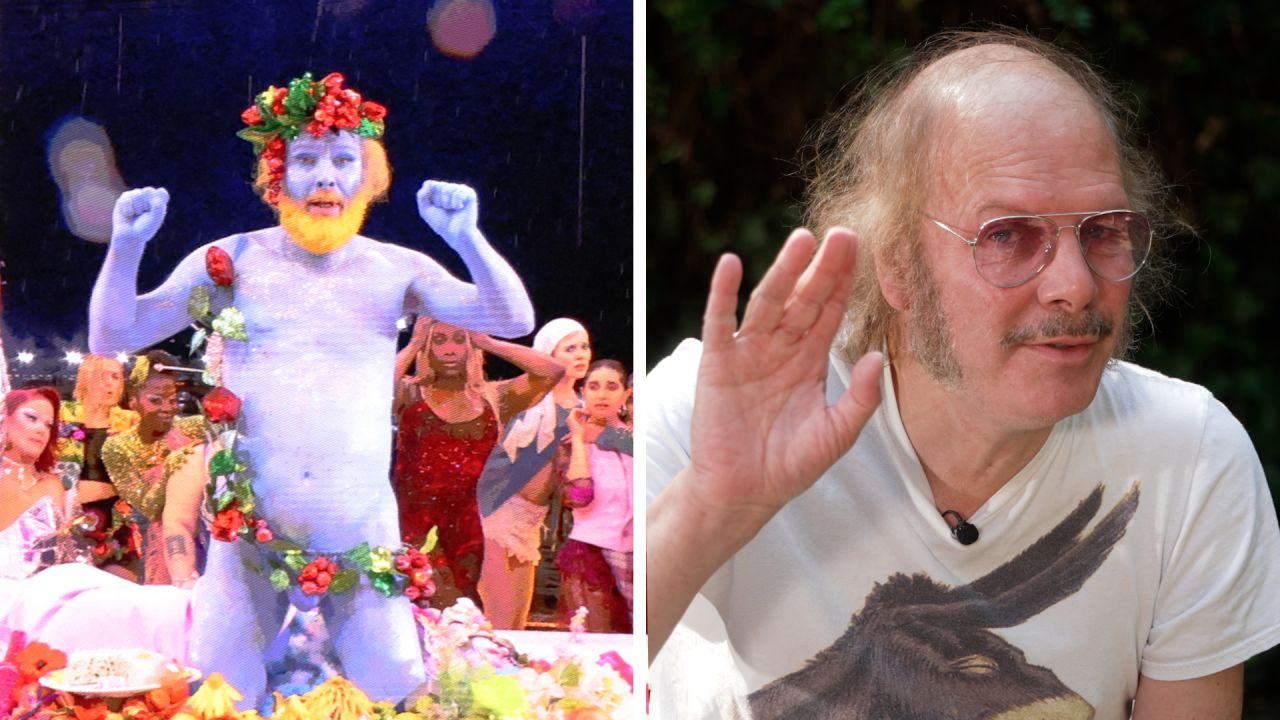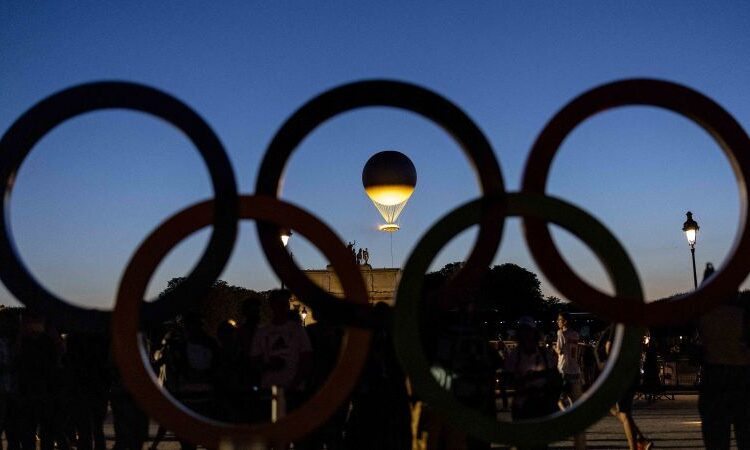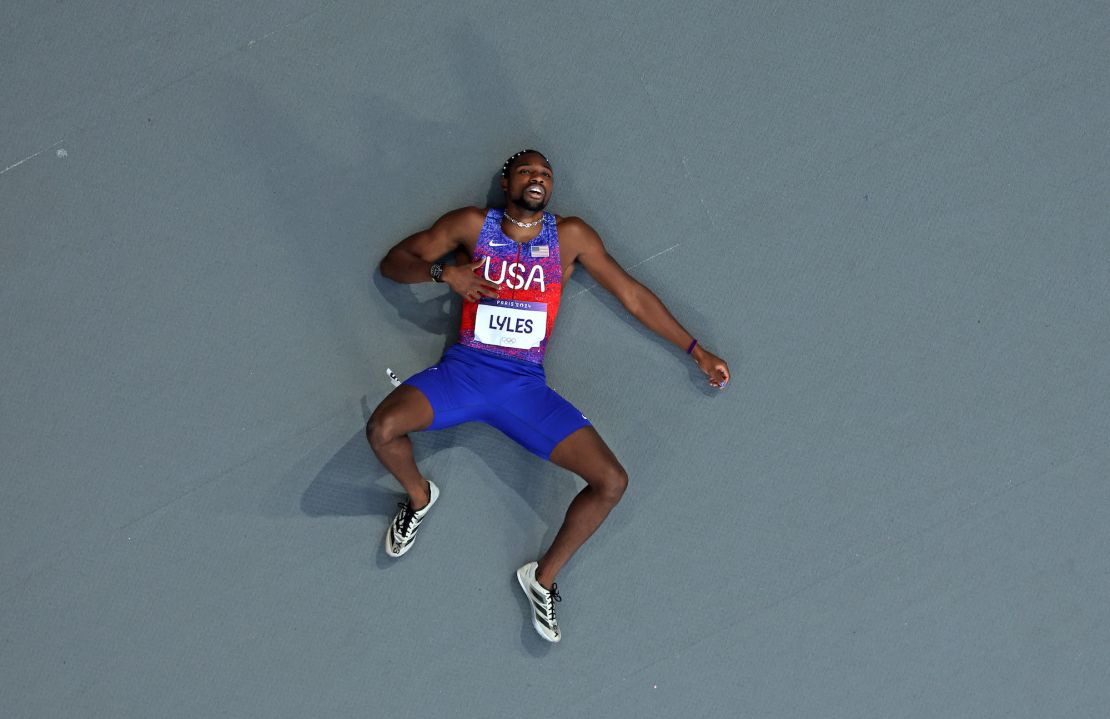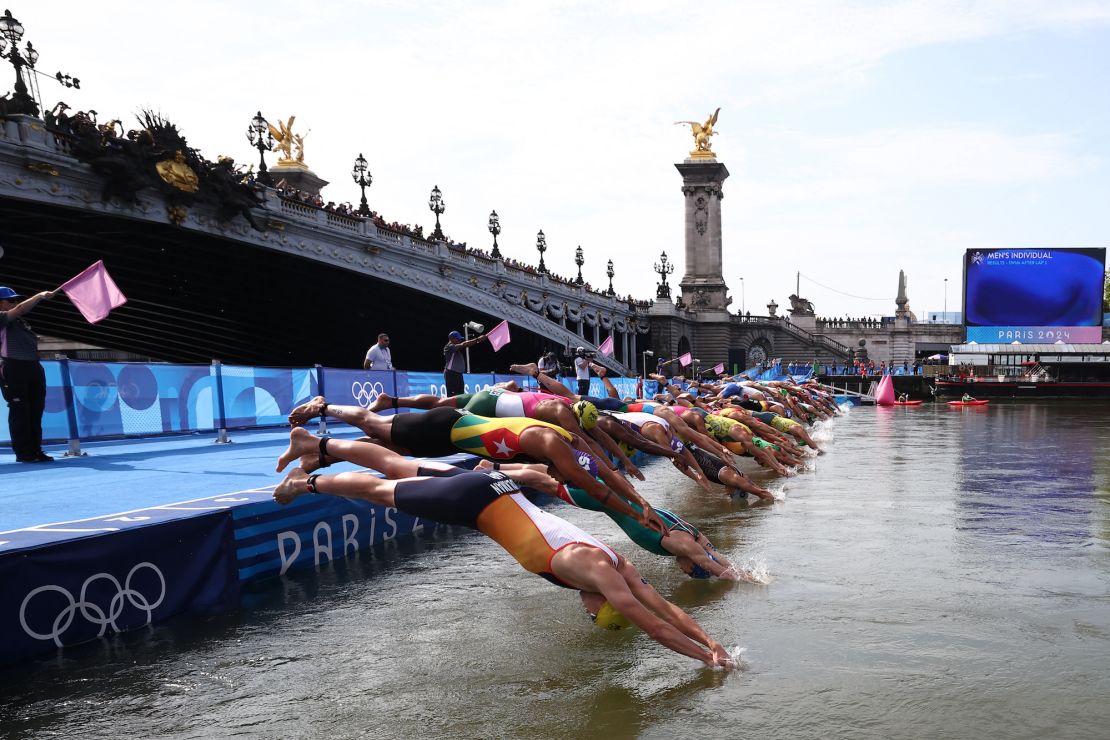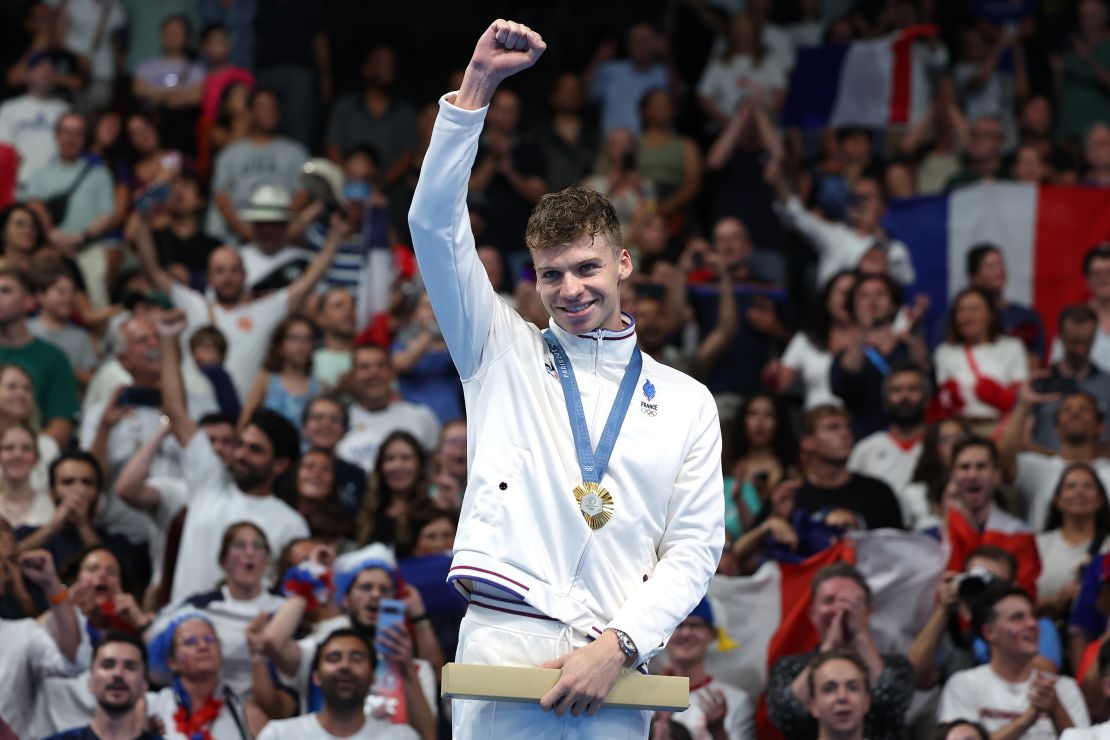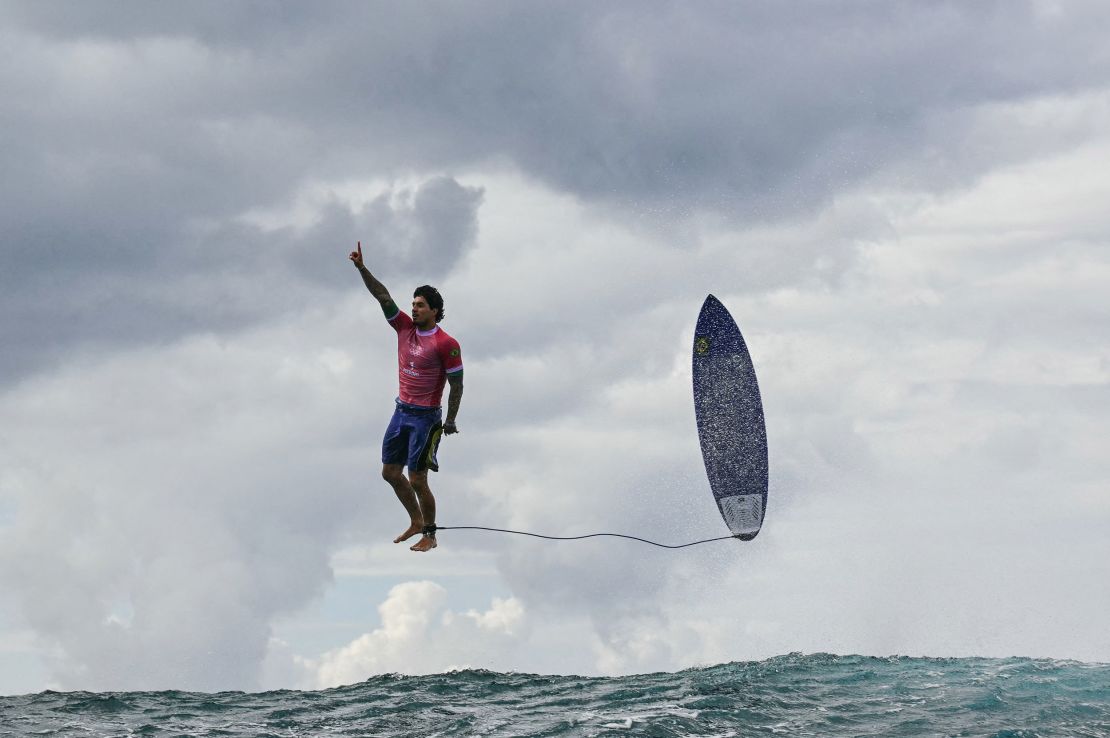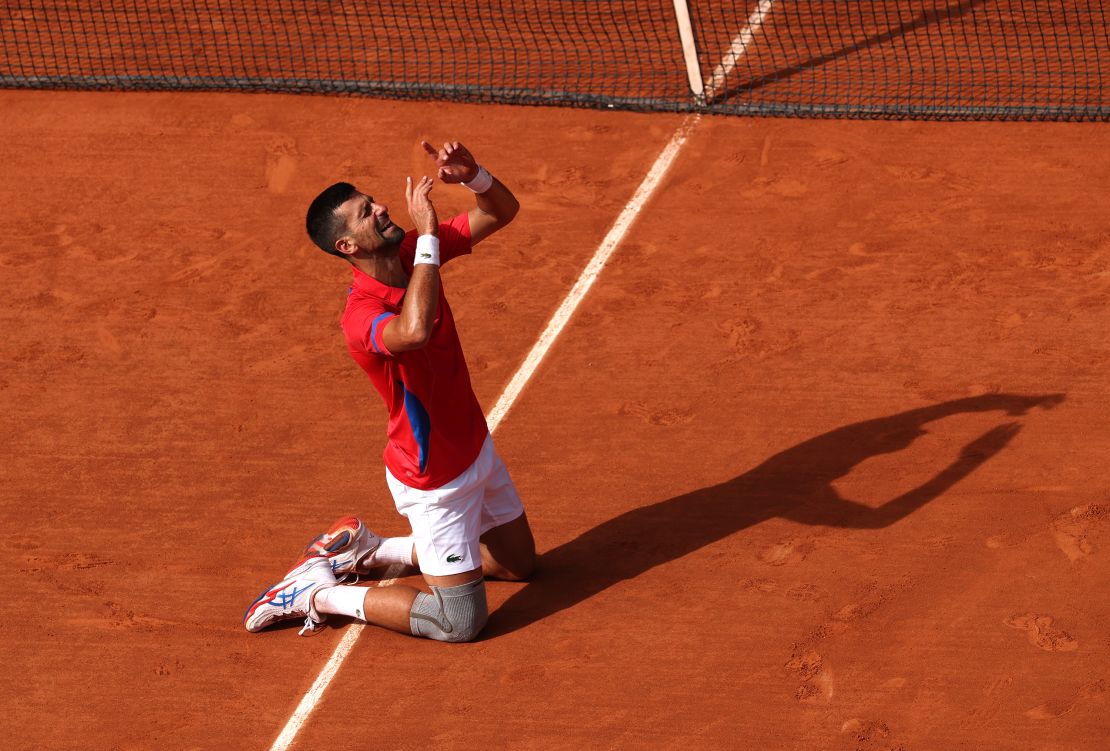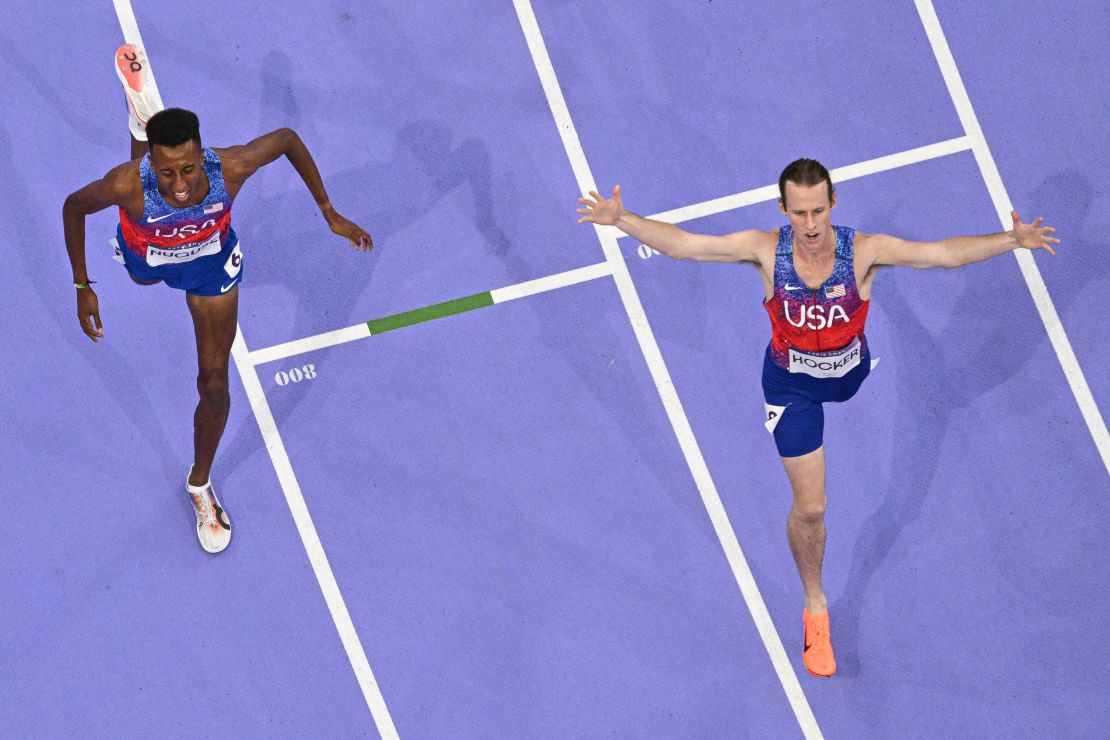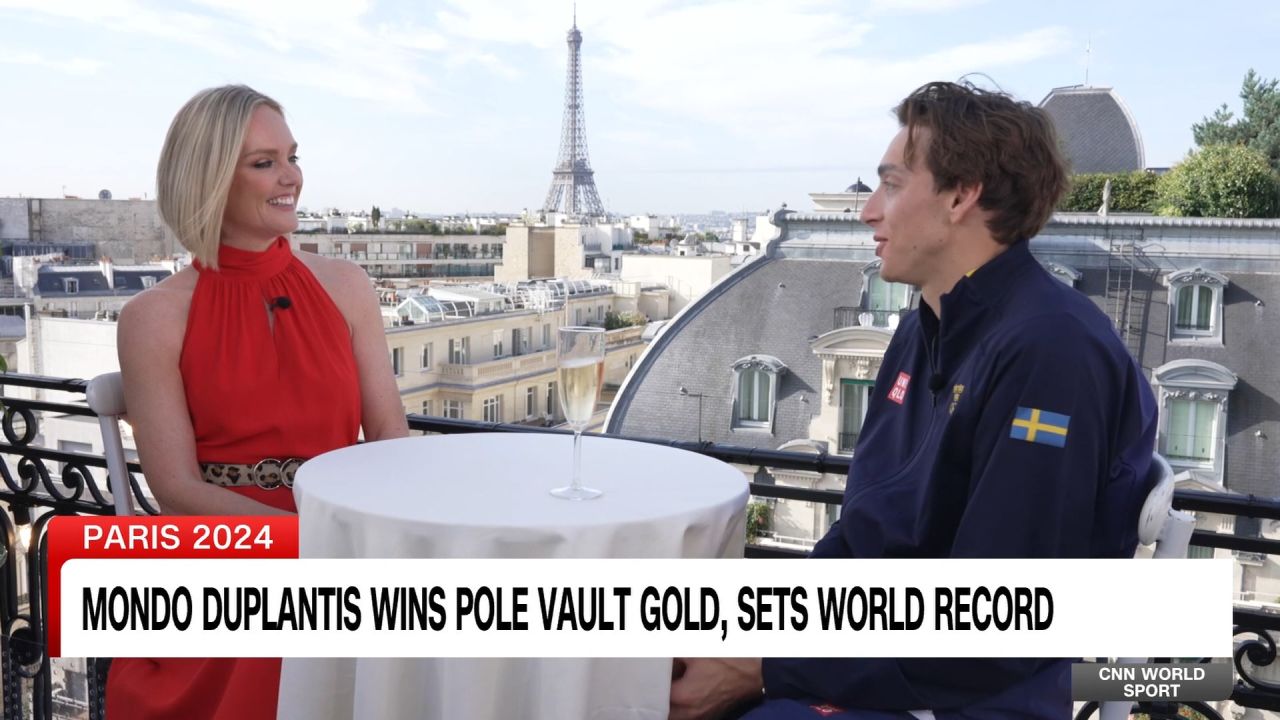Truly, what an incredible Olympics it was here in France.
It’s hard to condense a two-week period as jam-packed with memorable moments as these incredible Paris Olympics, but this is our best attempt.
Here are the 12 things we’ll always remember from the Paris Summer Olympics of 2024:
Simone Biles came to Paris as the most decorated gymnast ever and left with another three Olympic gold medals as well as a silver, becoming one of the biggest stories of these Games.
Such a haul underlines her status as the greatest athlete the sport has ever seen, particularly in light of her journey to the Olympic Games, which is now well-known but becomes no less extraordinary with each retelling.
The 27-year-old pulled out of several events at the Tokyo Olympics suffering from the “twisties,” a mental block causing gymnasts to lose track of themselves in the air, and took time away from the sport to focus on her mental health. Then, in Paris, she led the US to a brilliant gymnastics team gold, before securing individual golds in the all-around and vault competitions as well as a silver on floor.
‘I solely did it for myself’: Simone Biles on special meaning of Paris Olympics
Despite all the hype and expectation around her, Biles told CNN Sport’s Coy Wire that her return to the Olympics was for no one else.
“It was important to me because nobody forced me to be out there on that stage,” Biles said. “I solely did it for myself and I’m in a really good spot mentally and physically. So doing this for just me meant the world.”
Her return to the pinnacle of the sport has become a story about the importance of therapy, prioritizing your own mental health and bouncing back from rock bottom.
Imane Khelif became an unlikely face of these Olympic Games when she was subjected to online abuse after Italian boxer Angela Carini quit their bout in 46 seconds. Khelif went on to win the women’s 66kg welterweight gold medal a week later.
Some spectators watching her bout against Carini later raised questions about Khelif’s participation, citing a 2023 decision by a now-discredited boxing regulator to bar her from a women’s tournament.
The International Olympic Committee (IOC), however, strongly supported her participation in the 2024 Games, with IOC spokesperson Mark Adams saying she was “born female, was registered female, lived her life as a female, boxed as a female, has a female passport.”
The fight became a flashpoint for an often-misinformed debate about how women are allowed to compete in sports. It also triggered an onslaught of online abuse, with transphobic commentators incorrectly calling Khelif “a man” because of an alleged physical advantage.
With the eyes of the world on her, Khelif progressed through the competition, received huge amounts of support from the crowds watching her fight and eventually won a gold medal.
“I’m very happy. For eight years, this has been my dream and I’m now the Olympic champion and gold medalist,” she said after the fight. “I’ve worked for eight years, no sleep, eight years tired.”
After Khelif won her gold medal, her lawyer Nabil Boudi said on Saturday that she has filed a legal complaint with the Paris prosecutors saying she suffered “aggravated online harassment.”
“Imane Khelif decided to lead a new fight: one of justice, dignity and honor,” her lawyer Nabil Boudi said.
Katie Ledecky only furthered her legacy as an Olympic great at these Games, winning four medals – two gold, one silver and one bronze.
In the process, she became the most decorated female US Olympian of all time with 14 medals, surpassing fellow swimmer Jenny Thompson.
At 27, Ledecky likely has another Games in her, especially with the prospect of a home Olympics up next in Los Angeles in four years’ time.
Katie Ledecky basks in the glow of more Olympic glory
“I just love the pool, love the water, love telling people how great our sport is,” she recently told CNN Sport. “Getting people in the pool to learn how to swim, that’s really important to me.”
In Paris, Ledecky won her gold medals in the 800- and 1,500-meter freestyle events, as well as a silver in the 4×200-meter freestyle relay and bronze in the 400-meter freestyle.
Opening ceremony controversy and the ‘semi-naked blue guy’
It was one of the more memorable moments of arguably the most unique opening ceremony in history, but one that has sparked controversy around the world. The scene in question has been described by some critics as a parody of “The Last Supper,” which featured drag artists and multiple dancers.
The performance in question also included Philippe Katerine, a French entertainer who featured as the Greek god of wine Dionysus and quickly became known as the “semi-naked blue guy.”
Controversial ‘blue man’ at Olympic ceremony says he’s sorry
In the scene, Katerine sang a song while lying on a table, seemingly without clothes and covered head-to-toe in glittery blue paint.
His appearance went viral, watched by millions of people around the world. In an interview with CNN, Katerine said his song “Nu” – or “Naked” – was a message for peace, inspired by war, such as those in Gaza and Ukraine.
“Would there have been wars if we’d stayed naked? The answer is perhaps not because you can’t hide a gun or a dagger when you’re naked,” he said.
Olympic organizers apologized for the scene after it was criticized by the Catholic church and Christian groups. The French Catholic Church said the festivities “included scenes of derision and mockery of Christianity.” Katerine, too, apologized if his appearance shocked people, calling it a misunderstanding.
Noah Lyles is never too far from the headlines, and the Paris Games weren’t any different for the US sprinter.
First, he won the gold medal in the men’s 100-meter dash by the slimmest of margins – just five-thousandths of a second – exploding down the track at the Stade de France and leaning in to cross the finish line ahead of favorite Kishane Thompson of Jamaica.
The victory ended a 20-year Olympic drought in the event for the USA, when Justin Gatlin won the 100-meter race in Athens. It also cemented Lyles as the premier American superstar in the discipline as the charismatic 27-year-old sprinter had already been one of the top faces of track and field with his blazing speed and viral moments.
Then, a few days later was his signature race, the 200-meter sprint. He was typically very confident of completing an Olympic double.
However, in a stunning turn of events, Lyles finished in third, unable to overcome Botswana’s Letsile Tebogo and his Team USA compatriot Kenneth Bednarek, who finished in first and second place, respectively.
However, the result of the race was quickly bumped from the headlines when Lyles laid down on the track immediately following his crossing the finish line. He was helped off the track by medical personnel in a wheelchair and taken to the medical holding area.
He later revealed that he had tested positive for Covid-19 earlier this week and ran in Thursday’s 200-meter race anyway.
It was the last we saw of Lyles in Paris, but he left with a gold and bronze medal added to his tally, and his title as the fastest man in the world reclaimed.
Ahead of the Paris Olympics, swimming in the River Seine had been illegal for more than 100 years due to the water’s pollution level.
However, in a mission to stand out and make some of the swimming events unique, authorities spent at least €1.4 billion ($1.55 billion) to clean up the Seine in the lead-up to the Games, and Paris officials made a big show of displaying its suitability.
However, the river’s E. coli levels meant the men’s individual triathlon – which began with the swimming leg in the Seine – had to be postponed by a day, and practice swims for the marathon swim and triathlons had to be canceled due to poor water quality levels following rainy days.
But Paris 2024 organizers insisted the water quality in the Seine was at a “very good” level on the morning of the individual triathlons.
Belgium later withdrew from the mixed relay triathlon race and Switzerland had to mix up its roster after athletes from both countries fell ill following the initial triathlon races.
Neither country said if their respective athletes’ illnesses were due to E. coli, but it only increased scrutiny around the use of the Seine.
Despite water quality eventually reaching acceptable levels, Olympic organizers were criticized by athletes and National Olympic Committees for the uncertainty around the race and training schedules.
Léon Marchand becomes hometown hero in the pool
If there was one French athlete who starred most at the Paris Games, it was probably Léon Marchand.
The 22-year-old was a sensation in the pool, becoming the first athlete in decades to win two individual swimming gold medals — the 200m breaststroke and 200m butterfly — on the same night, both in Olympic-record times.
He won four overall golds in the Games on home soil.
The thunderous chanting of Marchand’s name was the soundtrack of La Défense Arena on August 1 after the Olympic record setting night.
“It was amazing. The first day was definitely the most impressive for me. I just came on the pool side and the whole pool was cheering for me,” he told CNN Sport
Coached by Bob Bowman, the same man who helped Michael Phelps to legendary status, Marchand has blossomed into one of the most dominant swimmers, and to do it in front of the home crowd was an even more special occasion.
“There was like 15,000 people in my lane. It was amazing. It’s something I will remember forever,” he told Wire.
Turkey’s understated Olympic shooter causes a stir — and inspires a celebration
Perhaps the most talked-about athlete from these Olympics wasn’t necessarily the most decorated, nor the most obvious household name.
In fact, few people would have heard of Turkish shooter Yusuf Dikeç prior to the Games, but his seemingly nonchalant approach to his discipline has earned him celebrity status in Paris.
With no specialized equipment — such as custom glasses, large ear protection or tinted lenses — and a hand casually resting in one pocket, Dikeç claimed Turkey’s first Olympic medal – a silver – in shooting with teammate Şevval Ilayda Tarhan.
Even pole vault gold medalist and world record holder Mondo Duplantis imitated the 51-year-old’s cold stance – hand in a make-shift pocket and an outstretched arm holding an imaginary gun.
Viewers became obsessed with the confident and apparently laidback approach, though Dikeç said that his stance “is actually about bringing the body to equilibrium and focusing and concentrating.”
Not every Olympic shooter shares the same approach. South Korea’s Kim Ye-ji endeared herself to viewers with her more decked-out approach, competing in a cap, futuristic glasses and monochromatic clothing.
It was a celebration worthy of the ages — or at least viral fame.
Surfer Gabriel Medina was taking on Kanoa Igarashi, the man who beat him at the Tokyo Olympics and eventually won silver, and he was looking to turn the tide this time around.
The Brazilian not only managed to take down the Japanese surfer on July 29, he did so in part thanks to a near-perfect 9.90-scoring wave on Day 3 of the surfing competition in Tahiti. It was the highest-scoring wave in Olympic history.
The resultant jubilation produced another moment of perfection: Medina leapt from his surfboard, raised his finger aloft and his board just managed to fly parallel to him as photographer Jerome Brouillet from Agence France-Presse snapped the shot.
On his fifth time trying, after a match of extraordinary quality, Novak Djokovic has a late addition to his near-perfect tennis resumé: Olympic gold medalist.
Djokovic outdueled Spain’s Carlos Alcaraz in a brilliant, exhausting men’s singles final at Roland Garros, triumphing 7-6(3) 7-6(2) in two hours and 50 minutes.
With the victory, Djokovic became the fifth player to own what has been dubbed the career “golden slam” by winning all four majors and an Olympic singles title.
That exclusive group also features Rafael Nadal, Andre Agassi, Steffi Graf and Serena Williams, who was in the stands to witness the pulsating contest.
How much the triumph meant to Djokovic was immediately evident. Upon winning match point, he roared with delight, dropped to his knees, then tearfully embraced his family and coaching team.
A Serbian flag was soon brought out, and the 37-year-old – the oldest man to win an Olympics singles gold medal – still seemed shaken with joy when he returned to his courtside chair.
This is the first title that Djokovic has won all year, but arguably the one he wanted the most.
“Playing for Serbia has always been my utmost, real pleasure, my priority,” he said after the match. “I’m just so proud to be a part of an elite number of athletes that managed to win gold for their countries in their respective sports.”
Team USA’s track and field dominance reaches new heights
Team USA are used to dominating in track and field. But in Paris, their level of success was unparalleled.
American athletes won 34 medals at the Stade de France, made up of 14 golds, 11 silvers and nine bronzes.
Some of the highlights include Sydney Mclaughlin-Levrone’s dominant performance in the 400m hurdles, Noah Lyles finally claiming the 100-meter dash crown, Tara Davis-Woodhall jumping to victory in the women’s long jump and Ryan Crouser winning his third straight Olympic shot put gold.
It was a marked improvement for Team USA from three years ago in Tokyo, where it won 26 track and field medals; seven gold, 12 silver and seven bronze.
Mondo Duplantis wins gold and breaks his own world record — again
Few athletes are so completely dominant in their sport as Armand “Mondo” Duplantis.
The Swedish pole vaulter successfully defended his Olympic title in Paris, but he wasn’t satisfied with simply winning the gold.
Raising the bar to a gargantuan 6.25-meters, Duplantis broke the world record for the ninth time in his career, clearing the height on his third and final attempt at the Stade de France.
Mondo Duplantis sets world record to claim Olympic gold medal
For context, USA’s Sam Kendricks took silver after clearing 5.95m — 30 centimeters (arond 11.8 inches) lower than Duplantis’ world record — while Greece’s Emmanouil Karalis was third with 5.90m.
The 24-year-old has backed himself to break the record again, although that will be a challenge for another day.
“I had this feeling of peace and confidence that is hard to explain, but for it to work out the way it did is unbelievable really,” he told CNN Sport’s Amanda Davies the morning after his record-breaking feat.
